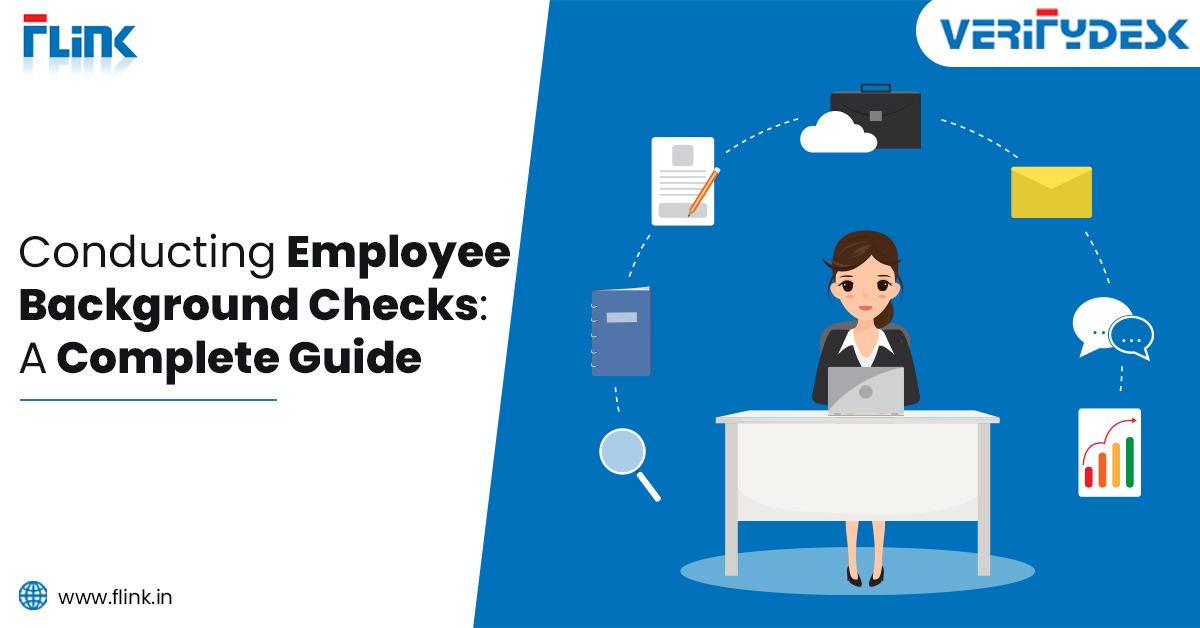
The Indian corporate sector has undergone many changes with its business practices. Employers and recruiting managers have increasingly become vigilant about their hiring practices and have adopted employee background checks as a mandate. In the wake of employee credential fraud and data misrepresentation, employee background screening has become a critical requirement for organizations. According to a survey conducted by NAPBS (National Association of Professional Background Screeners) over 1,528 HR professionals, 96 percent of them stated that their organization handles one or more kinds of employee background checks.
In case you are among the four percent and want to gain valuable insights into employee background checks, this article can act as a guiding light for you.
An employee background check is a complete review of a candidate’s social, criminal, professional, and financial records. It entails a thorough screening of a candidate’s employment history, educational and academic details, legal data, credit scores, among many other aspects. Quite often, employers conduct background checks on job candidates passing the interview process. It is a valuable instrument as background checks safeguard organizational assets, promote workplace safety, and reduce employee turnover through authentic hiring. In this way, an employee background check protects an organization’s corporate reputation by inspiring confidence among clients and shareholders about its team.
Organizations conduct comprehensive screening of candidates alongside background verification companies through a variety of checks. These may include address and ID verification, drug and substance abuse testing, professional reference checks, etc. However, organizations usually emphasize on the following-
Professional Experience:
Organizations and companies contact past employers to gather information about the employment duration, performance history, workplace behavior, exit reason, etc.
Criminal Records:
Companies approach judiciary and law enforcement agencies for any criminal information on the potential candidate. Sexual harassment cases are into serious consideration. Organizations avoid hiring candidates booked for such offenses.
Credit history:
It is necessary to have information on the complete financial record of the candidate. It reflects the financial management skills of a prospective employee. Poor credit history affects the candidate review negatively.
Residential Address:
This comes under a basic mandatory check. Companies on discovering fraudulent address info drop the respective prospect’s candidature immediately.
Educational Data:
Forged educational data has become today’s norm. It has become common for companies to receive fraudulent educational documents from candidates. Companies, through this check, reach out to the concerned universities for complete authentication.
[/list]
Employee background checks reduce hiring risk factors by ensuring a candidate’s job fit. On the flip side, it promotes optimal organizational health. However, before conducting verification, organizations must consider certain aspects of a seamless hiring process.
Conducting verification can be difficult. Employers and managers might require to perform multiple checks for several candidates at once, thus creating scope for disorganization. A haphazard background verification process can even cause legal issues due to data mishandling. Hence, it is advisable to form a documented flow outlining the implementation of every check through a recruitment process.
Background checks can reveal sensitive information. In such cases, it becomes crucial for a recruiter to handle the data and consider the consequences of the resulting decisions. Additionally, an employer might require different kinds of checks for a more responsible job opening. Gaining professional insights from an experienced employee background verification provider ensures a rewarding hiring experience.
Many background verification companies tend to offer sub-standard employee background checks with misleading data. Hence, it can be costly for an organization. It not only plays the risk of losing on suitable candidates but also adds to hiring cost. Given the poor organization of verification practices in a vast country like India, a wrong choice can reflect wrongly upon your company. Companies must look for formal attestations from reliable organizations like ISO (International Organization for Standardization) and NASSCOM (National Association of Software and Service Companies).
It is illegal to perform certain background checks without the knowledge of an examinee because every step requires candidate compliance. Also, it is usual for critical information to surface during a background verification process. Thus, hiring managers must assess the severity of the check before performing it, with cooperation.
Employee background checks are among the most effective tools for building the right ‘infrastructure’ of employees. India is already witnessing a massive turnaround in recruitment, with companies investing in this lucrative tool from even tier-2 and tier-3 cities. However, there is much more to this. A professional company with comprehensive and IT-enabled verification services can provide detailed information with specific screening suggestions appropriate for a hiring requirement. Connect with us to optimize your recruitment process.
